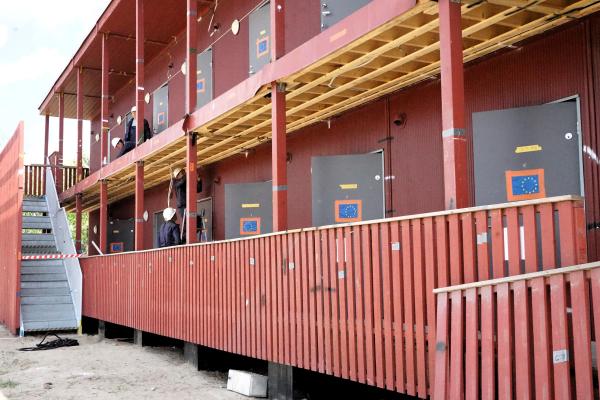Filter by
Stories (369)
RSS
Exactly 1,000 days ago, on 24 February 2022, Russia waged an all-out war on Ukraine. These days will forever be marked by the immeasurable suffering of the Ukrainian people but also by their outstanding resilience.
- Type
- Field blog

When the Alau dam in Nigeria’s Borno state burst its banks after incessant rains pounded the region in early September 2024, a disaster of apocalyptic proportions unfolded. The state capital, Maiduguri, was deluged in no time.
- Type
- Field blog

The viral disease mpox is spreading in Africa and has been declared a public health emergency of international concern (PHEIC) by the World Health Organization. We spoke to Matteo Nocci, who oversees medical programmes, to find out more about the current outbreak.
- Type
- Field blog

On 26 December 2004, apocalyptic scenes flickered across TV screens around the world: leveled coastlines, uprooted palm trees, and people desperately searching for their loved ones under the rubble of their destroyed homes.
- Type
- Field blog

In the Central African Republic (CAR), conflict, violence and trauma have impacted the lives of almost everyone. Coups, civil wars, inter-religious conflicts, and decades-long political and military instability have left their mark on the population.
- Type
- Field blog

On 26 May 2024, cyclone Remal made landfall in Bangladesh. It was the most devastating storm to strike Bangladesh in over a decade. Remal caused widespread damage, but it didn’t catch the local population unprepared.
- Type
- Field blog

Access to clean, safe water is a fundamental part of any effort toward providing a stable and healthy life for communities impacted by conflict and climate change.
- Type
- Field blog

Evelina and Alvard. They are 2 mothers who faced the same nightmare during the Nagorno-Karabakh conflict. They ran away for safety twice to the neighbouring Armenia during the conflicts
- Type
- Field blog

The crisis that has been affecting Mali for more than a decade has undermined the country's healthcare system. Access to quality health services is increasingly difficult for the Malian population.
- Type
- Field blog

Khadija is one of the tens of thousands Sahrawi refugees living in the refugee camps in southwestern Algeria. Here, life is a constant struggle, with temperatures regularly exceeding 50℃ during Summer.
- Type
- Photo story

Since 2021, large swathes of South Sudan have been under water. Unity State, where Angelina and her family live, has been the worst affected. Communities survive on the high ground, cut off from services, and each other, by the flood waters.
- Type
- Field blog

In this story map, you will get an insight in EU preparedness and response to wildfires in 2024.
- Type
- Field blog

In North-West Syria, 13 years of conflict have left over 4 million people in need of humanitarian assistance to survive, and the situation only continues to deteriorate with no end to the conflict in sight.
- Type
- Field blog

Wildfires are becoming a permanent occurrence in many parts of Europe and the world.
- Type
- Photo story

In 2023, an unprecedented 520,000 people crossed the Darién Gap, a dangerous stretch of hostile jungle connecting Colombia to Panama, to seek refuge in North America.
- Type
- Field blog

Responding to the crisis in Sudan, one of the world’s most brutal conflicts
- Type
- Field blog

Since mid-2023, the West Bank has been subjected to unprecedented violence. These operations, employing airstrikes, drones and heavy machinery, caused extensive damage to infrastructure and widespread destruction and led to numerous arrests and killings of Palestinian civilians.
- Type
- Field blog

"It was impossible to stay there. They were everywhere, at the entrance with weapons, their equipment scattered around. We were just afraid to stay, so we left."
- Type
- Field blog

As Patrick prepares to leave the country and the continent again, we asked him, for World Humanitarian Day, to look back on his time in Burkina Faso.
- Type
- Article

The effects of climate change on the agricultural sector make it harder and harder to make ends meet. It is increasingly difficult for the family to afford even basic needs such as clean water, warm clothes, heating, or access to healthcare.
- Type
- Field blog
